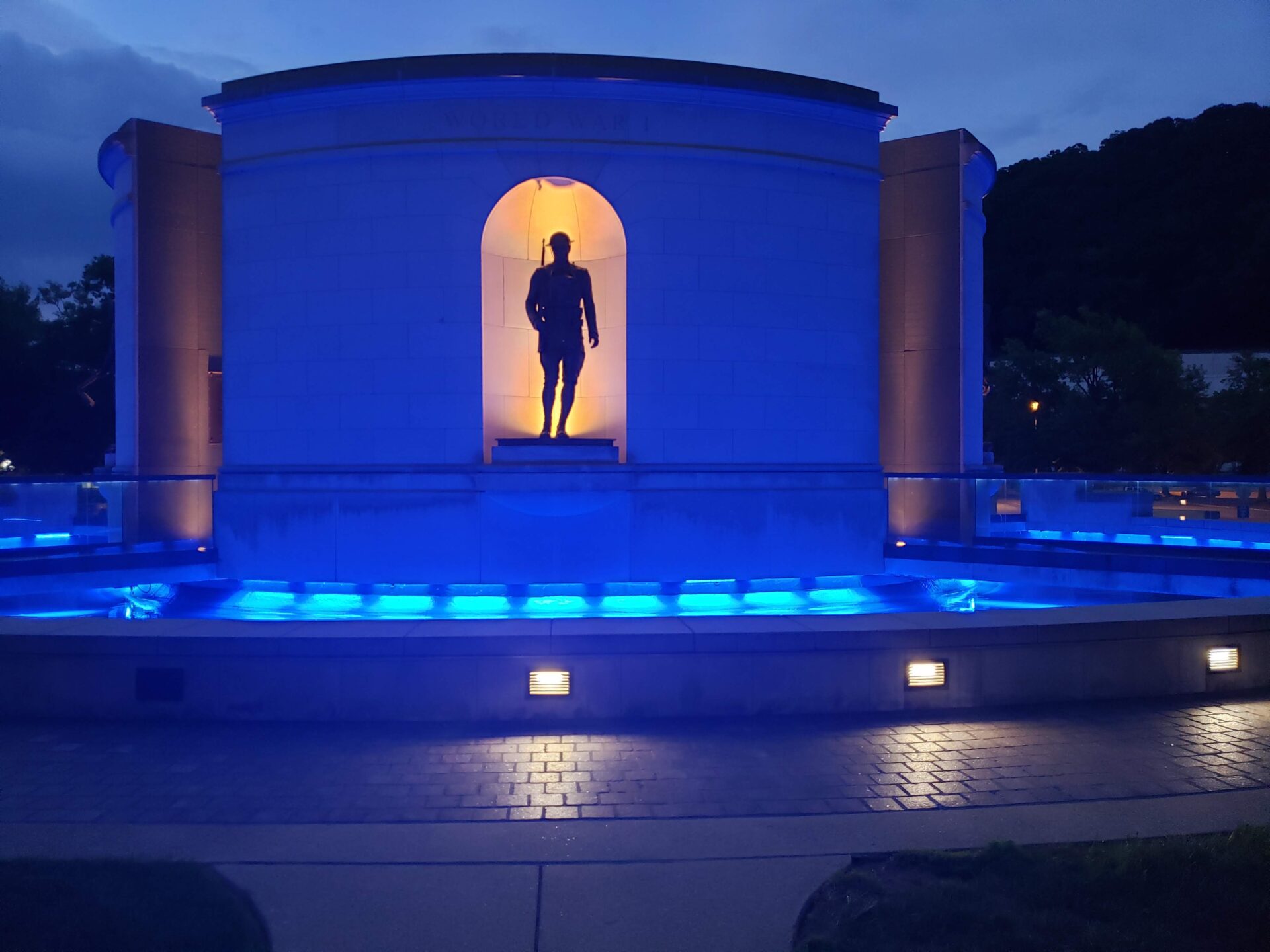Attorney General Patrick Morrisey easily won the West Virginia governor’s race Tuesday, using an endorsement from former U.S. President Donald Trump to catapult him to victory in the deep red state.
Morrisey emphasized his role as a “conservative fighter” in the courts on issues ranging from abortion to transgender participation in sports to best Steve Williams, the Democratic mayor of West Virginia’s second-largest city of Huntington.
“You deserve respect and dignity and a path for a better life,” Morrisey told cheering supporters at the Martinsburg Roundhouse event center, after the race was called. ”I want to help you find that by fighting to protect your freedoms and eliminating all the barriers where you have government standing in your way.”
Morrisey will become just the third Republican elected to a first gubernatorial term in West Virginia since 1928. Outgoing two-term governor Jim Justice, now a Republican, was first elected as a Democrat in 2016. He switched parties months later at a rally for Trump.
Morrisey told supporters that he had received a call from Williams, who he called a friend, conceding the race. He thanked Williams for his service to Huntington and for running a “civil” campaign.
Morrisey’s win further solidifies the GOP’s ever-tightening grip in the mountain state, where Democrats reigned for decades. He said Tuesday that for far too long the state’s industries have struggled and young people have felt forced to leave the state.
“They’ve lost hope, and they’ve felt the wave of economic hardships that have held back our families and our state,” he said. “But tonight we stand on the threshold of a new chapter.”
Trump-endorsed Morrisey leveraged high-profile litigation taken on by his office to make the case for why he was the best man for governor.
Since he was elected attorney general in 2012, Morrisey, 56, has led litigation against opioid manufacturers and distributors netting around $1 billion to abate the crisis that has led to 6,000 children living in foster care in a state of around 1.8 million.
He defended a law preventing transgender youth from participating in sports and a scholarship program passed by the Republican lawmakers that would incentivize parents to pull their kids from traditional public school and enroll them in private education or homeschooling.
Key to his candidacy has been his role in defending a near-total ban on abortions passed by the Republican-controlled legislature in 2022 and going to court to restrict West Virginians’ access to abortion pills.
In a statement after a U.S. District Court judge blocked access to the pills in 2023, Morrisey vowed to “always stand strong for the life of the unborn.”
Williams, a 60-year-old former state lawmaker, tried to make the argument that most voters found the new abortion law too restrictive.
Earlier this year, Williams collected thousands of signatures on a petition to push lawmakers to vote to put abortion on the ballot for voters. The effort was unsuccessful. Republicans have repeatedly dismissed the idea of placing an abortion-rights measure before voters, which in West Virginia is a step only lawmakers can take.
West Virginia is among the 25 states that do not allow citizen initiatives or constitutional amendments on a statewide ballot, an avenue of direct democracy that has allowed voters to circumvent their legislatures and preserve abortion and other reproductive rights in several states over the past two years.
Republican leadership has pointed to a 2018 vote in which just under 52% of voters supported a constitutional amendment saying there is no right to abortion access in the state. But Williams said the vote also had to do with state funding of abortion, which someone could oppose without wanting access completely eliminated.
In Charleston on Tuesday, first-time voter Candace Morris said abortion was the most important issue to her in deciding who to support in the race. She chose to support Williams.
“I just don’t think it’s right for the government to control women’s reproductive rights,” said Morris, a 19-year-old student studying social work at West Virginia State University, a historically Black institution. “I don’t want to have to leave the state to get an abortion if I need to get one. I just don’t think it’s right, especially for lower-class people without resources.”
William Harmon, a retiree from Hurricane, said he supported Morrisey because he likes what he has accomplished as attorney general. “I think he’ll defend us very well,” he said.
Harmon said Democrat Steve Williams “really didn’t seem to be very active until these last two weeks before the election.”
“I don’t think anybody outside of Huntington really knows him very well,” he said.
Kristen Greene, an elementary school teacher from Charleston, said she is a Christian registered Republican who is vehemently against abortion. She considers it one of her top issues when it comes to deciding who to vote for, she said.
However, Greene said there was no way she could support Morrisey for governor. In 2018, when West Virginia school service personnel and teachers went on strike, Morrisey said the strike was illegal and that he would go to court to try to force workers back on the job.
“I don’t trust that he has the best interest of teachers at heart,” she said. “He didn’t support teachers. Does he expect teachers to support him?”
Greene, who previously lived in Huntington, said she’s a “big fan” of Williams and the job he’s done as mayor.
“I stand behind him,” she said.
Morrisey previously ran for U.S. Senate in 2018 but lost to Independent U.S. Sen. Joe Manchin, then a Democrat.
